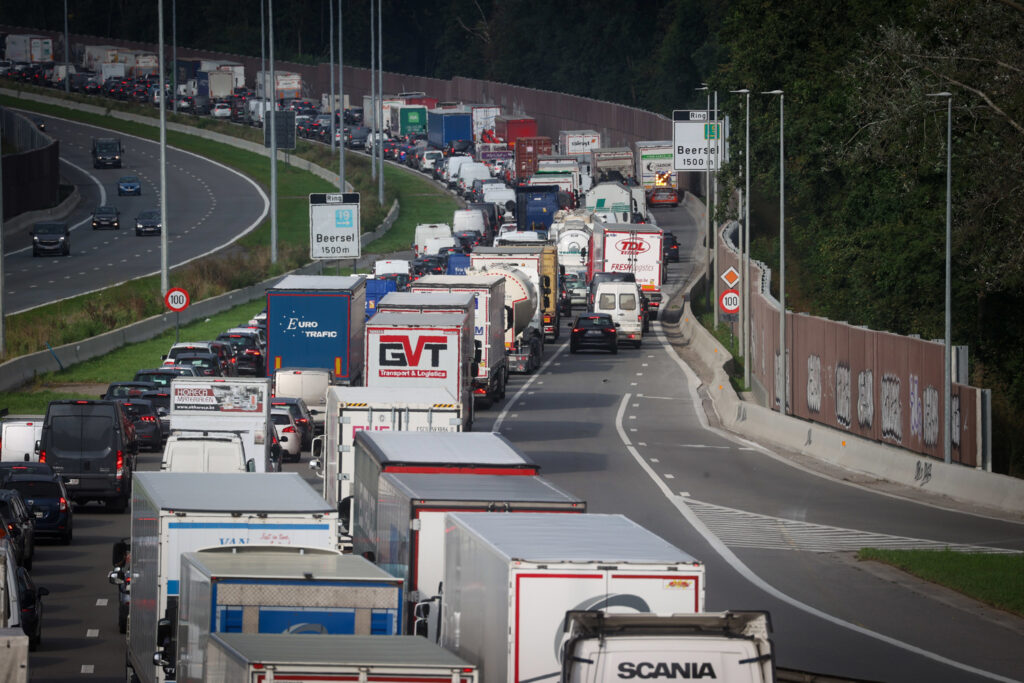Traffic congestion reached a new record high on Flemish roads in January, according to data released on Tuesday from the Flemish Centre for Mobility.
Aggravating factors such as snowfall and road blockages from protesting farmers prompted unprecedented delays in January. This escalation in traffic congestion also pushed up the associated economic cost.
The average congestion rate on main roads in the Flemish region was 495 hours-kilometres per weekday in January. This equates to an average daily congestion length of 495 kilometres, lasting one hour each weekday. It marks a new record high for January, exceeding last year's average rate of 464 hours-kilometres.
January's traffic jams cost the Belgian economy €439 million, according to the Belgian Mobility Dashboard. This figure represents a rise of almost a quarter compared to January the previous year. The economic costs of congestion are attributed to wasted time, additional fuel consumption, and the price of increased vehicle emissions.
Within the past 12 months (from February 2023 to January 2024), congestion on main Flemish roads reached unprecedented levels. The average daily rate was 852 hours-kilometres, based on data from Statistiek Vlaanderen. Following the pandemic period, traffic jams started rising again from April 2021. By July 2023, congestion rates were setting new records.
The most severe congestion occurred in Antwerp and Brussels. In contrast, congestion was less prominent on main roads in the Ghent region and the rest of Flanders.

